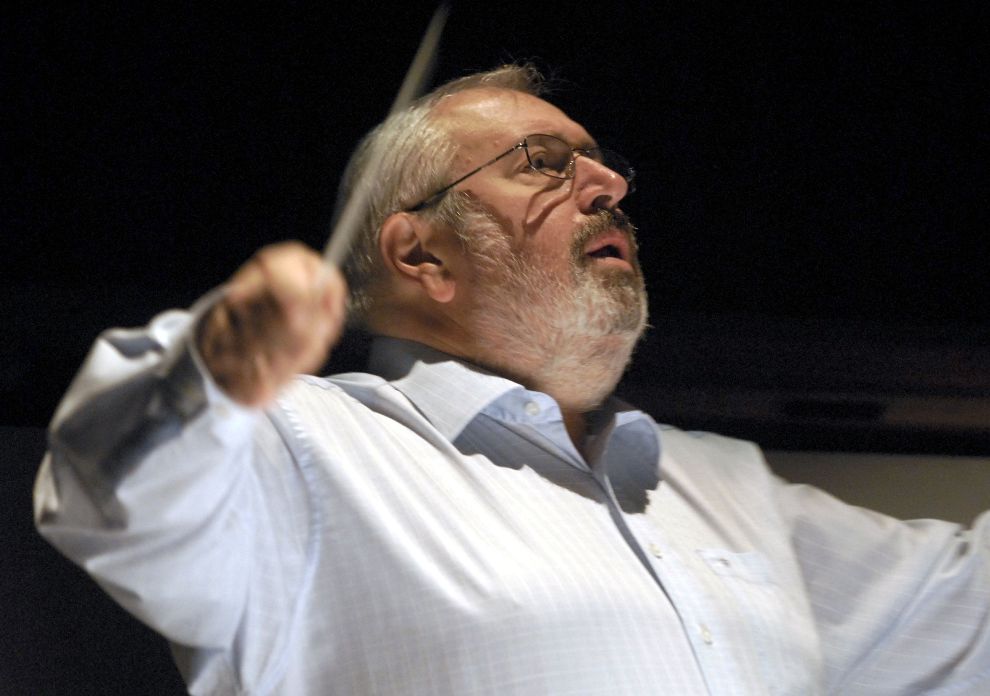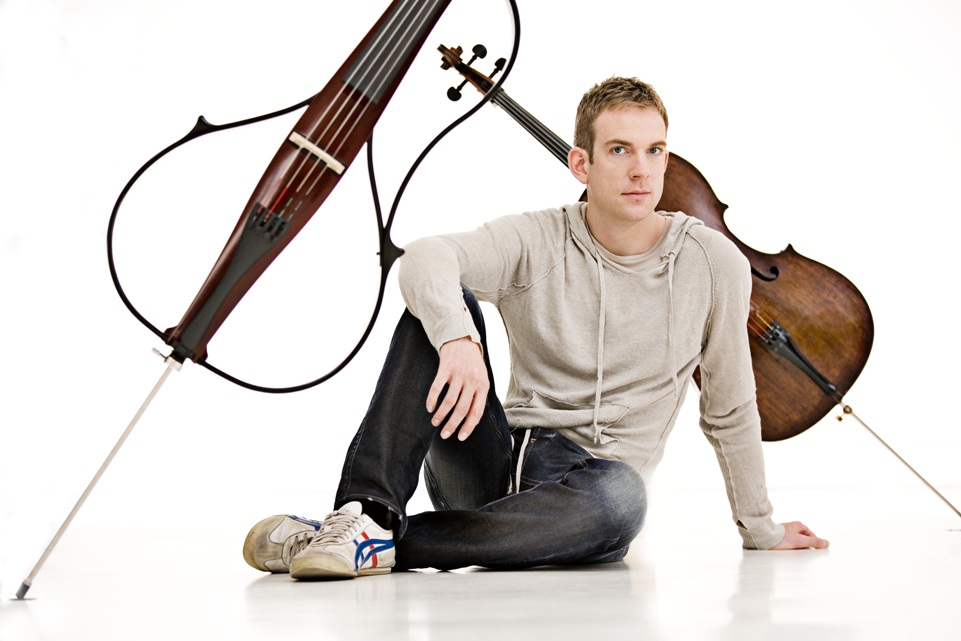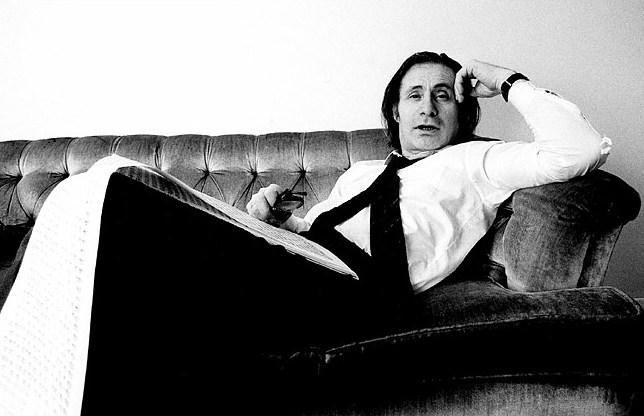Imagine how discombobulated the audience must have felt at the 1962 premiere of Shostakovich’s most outlandish monster symphony, the Fourth, 26 years after its withdrawal at the rehearsal stage. Those of us hearing its natural successor, Schnittke’s First Symphony, for the first time live last night didn’t have to (imagine, that is). There have been by all accounts several hair-raising London performances since the historic first performance in the "closed" Soviet city of Gorky (Nizhny Novgorod) in 1974, but surely each time anyone confronts this confounding work – running at around 70 minutes, depending on the length of the improvisations Schnittke encourages – the impact must be as hair-raisingly fresh as the day the work was born.
This was an astounding concert in every respect, the fitting climax to an anything-goes benchmark week in the life of The Rest is Noise Festival, out-trumping even Berio’s Sinfonia and Zappa’s 200 Motels, in depth at least. When I spoke to the conductor Michail Jurowski, distinguished father of the already equally challenging Vladimir, earlier in the evening, he expressed glee at the difficulty of the whole. Not that most of the youngish audience, children included, seemed to have any problems responding to the trance cosmos of Ligeti’s 1967 mood music Lontano, the theatricality of born performance artist Johannes Moser in Lutosławski’s Cello Concerto – a piece sounding immeasurably greater than the last time I heard it this year in the same hall – and the chameleonic changes, the essential players’ walk-ons and -offs of Schnittke’s hello-farewell-hello-again masterpiece. Indeed, it was the youth contingent which rose most readily to its feet at the end of the evening.
 Very well, so there were a few exits from audience members too in the symphony, mostly towards the end of the opaque, confrontational first movement, which after the bell-clamouring freefall of the players’ arrival moves towards an ululating riot only briefly brushed aside by the finale of Beethoven’s Fifth. The exiters missed the more graspable collage of the "scherzo", where the baroque pastiche quickly sours; as always in Schnittke, we laugh out loud, only to tense up at what’s around the corner. Which last night included a not quite long enough violin-and-piano duo from LPO Guest Leader Laurence Jackson and pianist Catherine Edwards, and later an abbreviated if still disorienting jazz improvisation bursting out of the finale's variations on the Dies Irae, the Latin chant for the dead.
Very well, so there were a few exits from audience members too in the symphony, mostly towards the end of the opaque, confrontational first movement, which after the bell-clamouring freefall of the players’ arrival moves towards an ululating riot only briefly brushed aside by the finale of Beethoven’s Fifth. The exiters missed the more graspable collage of the "scherzo", where the baroque pastiche quickly sours; as always in Schnittke, we laugh out loud, only to tense up at what’s around the corner. Which last night included a not quite long enough violin-and-piano duo from LPO Guest Leader Laurence Jackson and pianist Catherine Edwards, and later an abbreviated if still disorienting jazz improvisation bursting out of the finale's variations on the Dies Irae, the Latin chant for the dead.
How hard and tirelessly the LPO, brass especially, worked to terrorize and humour us. The theatrics of Jurowski senior (pictured above) may have been deadpan – hands in pockets when the baton wasn't needed – but you see where his son gets his absolutely clear and definitive beat from, every entry elegantly cued, and he shaped the multipart string slow movement towards a shattering climax and back.
Funny how Schnittke wanted to call this an anti-symphony; despite multiple implosions the four-movement form is crystal clear, and as always in his denser works, Schnittke forges an underlying purpose in every bar of his seemingly chaotic skip around musical history. What a treat to hear the Festival Hall organ hold full Gothic sway before a lone back-desk fiddler played the end of Haydn’s "Farewell" Symphony: a final gambit moving to tears, only to be brushed aside by the whole orchestra coming back to end more or less where they began - the idea of the original conductor and Jurowski’s mentor, Gennady Rozhdestvensky, who pointed out to Schnittke that all the players had to be present to take a bow.
 Rozhdestvensky has said that the only possible companion piece for the Schnittke in concert is the Haydn symphony it references, but here equal density paid off. I don’t know how many more stunning young cellists have yet to step in to the London limelight, but I’ve never been more gripped than by Moser’s performance of the concerto (the cellist pictured above by Uwe Arens). He played mercurially around the inexorable tocking of Lutosławski’s crazy opening solo, gesturing towards his orchestral colleagues, and acted out our astonishment at the trumpet interruptions (this was principal LPO trumpeter Paul Beniston’s night, too).
Rozhdestvensky has said that the only possible companion piece for the Schnittke in concert is the Haydn symphony it references, but here equal density paid off. I don’t know how many more stunning young cellists have yet to step in to the London limelight, but I’ve never been more gripped than by Moser’s performance of the concerto (the cellist pictured above by Uwe Arens). He played mercurially around the inexorable tocking of Lutosławski’s crazy opening solo, gesturing towards his orchestral colleagues, and acted out our astonishment at the trumpet interruptions (this was principal LPO trumpeter Paul Beniston’s night, too).
What in Truls Mørk’s performance with Salonen back in March had seemed like a concerto of random gestures, with a fair few dead zones, was here so fully inhabited by soloist, conductor and orchestra that - once again - every bar seemed meaningful. And how all three featured composers would surely have applauded Moser's anchoring encore, the Sarabande from Bach's First Cello Suite, drawing the entire hall in to another world of restrained but still supernatural beauty. The only shame is that the whole event wasn't filmed as well as radio-broadcast. With advocates like this, the thorniest of 20th century scores seem difficult no more.















Add comment